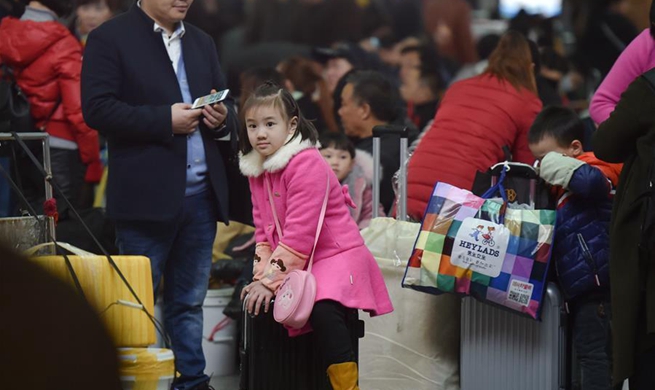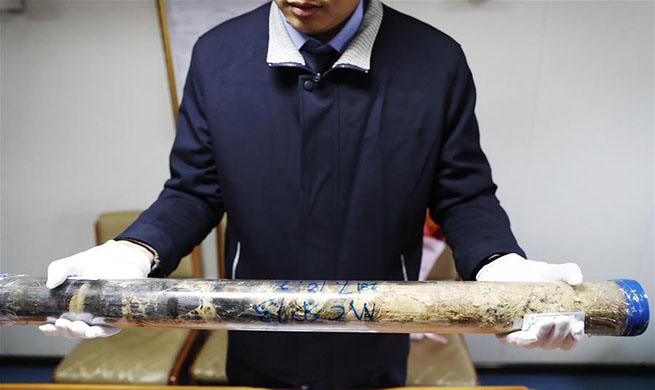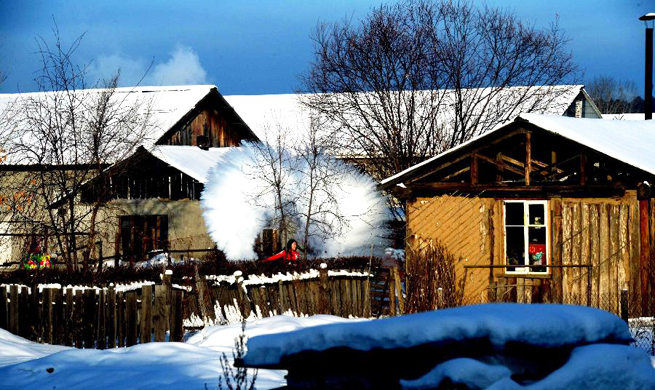KUALA LUMPUR, Jan. 31 (Xinhua) -- Ramli Amin, a 27-year-old local of the eastern Malaysian Borneo state of Sabah, gets up at 3:30 a.m. in the morning. When he rides a motorbike to his lot several km away from the dormitory, it is just on time for rubber tapping.
Ramli's job is to slice into the bark of the rubber tree and harvest the latex using a cup. Weather permitting, he could finish the daily task of tapping 600 trees in three hours.
There are now currently more than 400 rubber tapping workers in this plantation, about 150 km away from the tourist city of Kota Kinabalu. Each of them is responsible for 1,800 trees on average.
Malaysia used to be the third largest rubber-producing country in the world, ranking only behind Thailand and Indonesia. Due to sluggish rubber prices in recent years and Malaysia's shift to other crops such as palm, rubber tapping is gradually out of fashion among local people as rubber plantation area shrinking.
But Guangdong Guangken Rubber Group, a Chinese firm which since 2008 has invested millions of dollars leasing lands and introducing new technologies here, thinks otherwise. The Chinese firm has worked together with its local partner Bornion to create one of the largest rubber planation in Malaysia.
Lai Xionghui, general manager of Bornion Guangken Rubber Sdn. Bhd., the 50-50 joint venture between Guangken Rubber Group and Bornion, said as the number of rubber trees ready for tapping goes up, the cost will be further reduced and the company will be able to withstand longer term of low prices.
Lai said in Southeast Asia, the natural rubber productivity is higher than that in China but labor cost is lower. "A rubber tapper in China, normally in his or her 40s, earns 40 percent to 50 percent more than one in Southeast Asia," said Lai.
Currently there are some 770,000 rubber trees in the planation, and the company aims to raise that number to 2 million in a couple of years. To meet the target, more workers are needed.
A former air-conditioner service man, Ramli used to work in Kuala Lumpur, the capital city of Malaysia. But he came back to become a rubber tapper, hearing about the job information.
"Now as the company provides accommodation for my whole family, I can earn almost the same amount as working in Kuala Lumpur," Ramli told Xinhua, adding he earned more than 2,000 ringgit (512.9 U.S. dollars) in the last month.
Ramli said he also planned to let his wife take the rubber tapping training soon, so that they can earn more in the future to raise their three kids.
A skilled and hard-working rubber tapper, said Ho Fung Shan, a director of the joint venture, could earn as much as 5,000 ringgit. But still, it is not easy to hire enough workers. Aside from rubber tapping, the plantation also needs people to take care of nursery seedlings, which Lai said local people are not willing to take over.
Normally, it takes almost five years for a newly planted natural rubber tree to be ready for rubber tapping, which means the plantation needs hundreds of millions of nursery seedlings annually.
"After some pay raises, we are still short of 200 workers," said Lai, noting though there are plenty of Indonesian workers to hire in the market, local authorities fear an influx of foreign workers, who are willing to take the job at lower pays, could jeopardize the local labor market.
The Malaysian rubber plantation is not the only Guangken project in Southeast Asia. Amid industry-wide consolidation caused by rubber price slump, the Chinese firm also made inroads into Indonesia, Thailand and Vietnam, becoming one of the world's largest natural rubber companies after it bought a Thai competitor, according to a brief introduction from the company's website.
Lai declined to reveal the timetable for Guangken's Sabah plantation business to gain profits, saying it is subject to market prices.
He said a factory is also being planned to process rubber latex into dry rubber or a liquefied form known as latex concentrate, which will raise the profit margins.
"The most important thing for us is to take root here and let the people see we are making long-term commitment," said Lai.

















